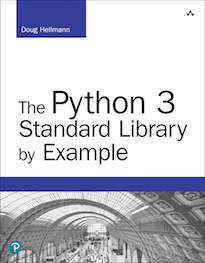defaultdict — Missing Keys Return a Default Value¶
The standard dictionary includes the method setdefault() for
retrieving a value and establishing a default if the value does not
exist. By contrast, defaultdict lets the caller specify the
default up front when the container is initialized.
import collections
def default_factory():
return 'default value'
d = collections.defaultdict(default_factory, foo='bar')
print('d:', d)
print('foo =>', d['foo'])
print('bar =>', d['bar'])
This method works well as long as it is appropriate for all keys to
have the same default. It can be especially useful if the default is a
type used for aggregating or accumulating values, such as a
list, set, or even int. The standard
library documentation includes several examples in which
defaultdict is used in this way.
$ python3 collections_defaultdict.py
d: defaultdict(<function default_factory at 0x101341950>,
{'foo': 'bar'})
foo => bar
bar => default value
See also
- defaultdict examples
– Examples of using
defaultdictfrom the standard library documentation. - Evolution of Default Dictionaries in Python
– James Tauber’s discussion of how
defaultdictrelates to other means of initializing dictionaries.
 PyMOTW-3
PyMOTW-3